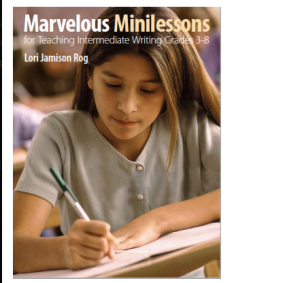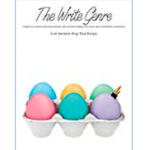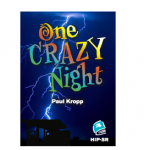How to Get Your Students to Love Writing (Yeah, right)
 Let’s face it, some of our students are never going to love writing (or reading or science or math), no matter what we do. But writing makes you smarter – in every subject. And I’ve never met anyone who didn’t want to be smarter. So maybe this post would be more appropriately titled “How to Make Your Students at Least Tolerate Writing.”
Let’s face it, some of our students are never going to love writing (or reading or science or math), no matter what we do. But writing makes you smarter – in every subject. And I’ve never met anyone who didn’t want to be smarter. So maybe this post would be more appropriately titled “How to Make Your Students at Least Tolerate Writing.”
Competence builds confidence. And we all are more likely to enjoy things we’re good at. So how can we help our students get better at writing? Here are some tips from Marvelous Mininlessons for Teaching Intermediate Writing:
1. Teach with a Capital T! 10 minutes isn’t very long for a lesson, so explicitly focus on one specific strategy or element of craft at a time: using vivid verbs, revising by inserting details, using quotation marks in dialogue, when to start a new paragraph, etc. Break up a big task, such as writing an argument, into smaller chunks, like “AIM for a great Beginning (Attention grabber – Background Information – Main point)” or “Other people might say…” (anticipating the argument). For dozens more minilesson ideas, see Marvelous Minilessons for Teaching Intermediate Writing.
2. Don’t forget the WE DO! Guided practice may well be the most important component of the gradual release of responsibility, yet too often we leap from explicit instruction to independent application without giving students an opportunity to try out the strategy in a safe and supported setting. (Each of the lessons in Marvelous Minilessons for Teaching Intermediate Writing is organized around I DO, WE DO, YOU DO.)
3. Shorter is better! For some reason, many students – and adults – have this idea that longer is better. And, in truth, it usually isn’t, especially in student writing. There will be situations in which senior high students might be asked to write lengthy pieces, but in writing workshop, I encourage 1-2 page papers. Remember that writing workshop is not as much about the product as the process and the growth of the writer. Students are more inclined to revise and edit a shorter piece.
4. Draft 3, Publish one! For every writing unit, I expect students to create three (short) pieces and take one to publication. In this way, they always have writing in their folders to revisit in order to try out a new strategy or technique that’s been taught. Also, it’s a little more manageable for me to keep track when students only have three pieces of writing on the go at any one time. I find I only have time to confer with students on the pieces they are taking to publication, although I might “dip into” other pieces of writing to look for specific strategies or elements of craft that have been taught.
5. Try to provide opportunities for Word Processing: This is particularly important for students whose handwriting or spelling ability interferes with writing fluency. But research has shown that most students write more and are more willing to revise their writing when it is word-processed, right from the first draft to the published piece.
6. Put Conventions in their place! Many a writer has been discouraged by poor spelling or grammar. But writing is a lot more than conventional capitalization! In fact, conventions exist as a courtesy to a reader, to make the writing easier to read. So editing for conventions should take place after the writing is done and before it is shared with an audience. That’s not to say that drafting should be a spelling free-for-all! Students should always be encouraged to spell as well as they can, but leave the dictionaries alone until the ideas are in place.
5. Use Rubrics! We might grumble about one more educational fad that wanes and waxes, but there’s a reason rubrics are very helpful to both students and teachers. Rubrics give teachers language to talk about writing and simplify grading. Most importantly, they let students know exactly what is expected of them.
School shouldn’t be a place where adults do the work for kids! Establishing independent routines for writing workshop frees the teachers up to do what they are trained to do: teach! Not sure where to start?
Check out “Launching the Writing Workshop: The First Five Days.”




